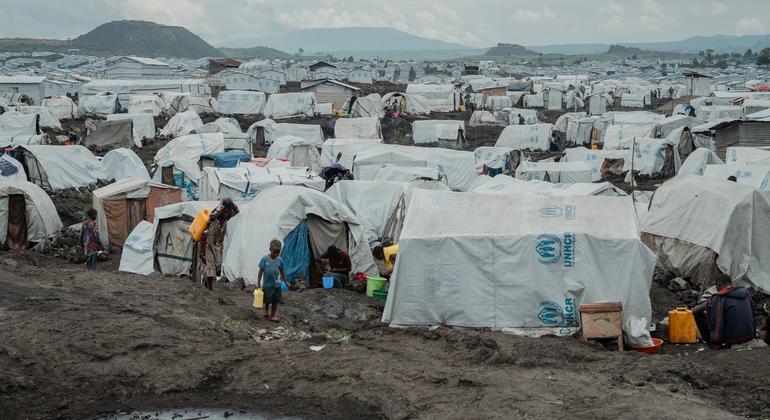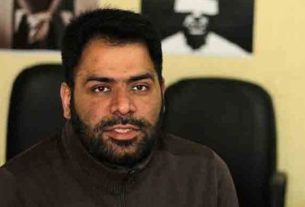The plan was announced by the High Representative for the UN Alliance of Civilizations (UNAOC), a platform for intercultural dialogue, understanding and cooperation.
Miguel Ángel Moratinos called antisemitism – prejudice or hatred towards Jews – “a toxic ideology with deep roots in bigotry and racism that still plagues our world manifesting itself in different forms.”
Eradicate antisemitism and all bigotry
He noted that the international community will soon mark 80 years since the end of the Holocaust, but antisemitism is still persistent in many parts of the globe.
“It is our collective responsibility to eradicate antisemitism, and all forms of bigotry, hatred and discrimination,” he said.
The plan is focused on the UN system and includes recommendations such as establishing a Working Group to monitor and evaluate the impact of policies and measures to address antisemitism.
Other actions include enhancing awareness and understanding of antisemitism among UN personnel.
Mr. Moratinos said the aim is to mainstream the Action Plan across UN policy frameworks, knowledge management and programming activities.
To this end, his office is working on launching a series of dialogues to exchange views on good practices on countering religious intolerance and bigotry, one of which will focus on antisemitism.
Escalating Violence in eastern DR Congo displaces hundreds of thousands
The UN refugee agency (UNHCR) and aid coordination office, OCHA, have expressed grave concerns over the escalating violence in the eastern Democratic Republic of the Congo (DRC), which has displaced 237,000 people this year alone.
“Escalating clashes between non-State armed groups and the Congolese army in North and South Kivu provinces are intensifying one of the world’s most alarming yet under-reported humanitarian crises,” said UNHCR spokesperson Eujin Byun on Friday, in a briefing in Geneva.
The violence has led to widespread human rights violations and massive forced displacement, with North and South Kivu already hosting 4.6 million internally displaced people.
From January 1 to 6, intense fighting in North Kivu’s Masisi and Lubero territories forced approximately 150,000 to flee.
Many sought safety in Masisi territory, only to be displaced again as violence spread. In South Kivu’s Fizi territory, 84,000 people are now displaced, with the local government requesting international humanitarian assistance.
‘Broader escalation’
OCHA reported that between January 14 and 15, at least 30 people were killed in Lubero territory, and 30,000 fled to Butembo and surrounding areas. “These recent attacks are part of a broader escalation of violence since June 2024, which has claimed at least 220 lives,” OCHA noted.
Humanitarian access is severely limited, leaving displaced populations in desperate need of shelter, food, clean water, and medical care. “Safe and unimpeded access for aid workers must be guaranteed,” emphasized UNHCR. Both agencies call for an immediate cessation of attacks against civilians and adherence to international humanitarian law.
UNHCR and OCHA remain committed to supporting displaced communities, but the scale of the crisis demands immediate action to scale up relief efforts.
Dignity for migrants should be our guiding light, insists ‘Cabrini’ actress
Film star Cristiana Dell’Anna travelled to Geneva on Friday to highlight her film about the age-old dangers confronting migrants and the astonishing Italian missionary who worked in the slums of New York at the turn of the last century, trying to protect them.
The film, Cabrini, is inspired by the true story of Italian nun, Mother Francesca Cabrini, who Pope Leo XIII tasked with helping vulnerable migrants arriving in the United States at the turn of the last century.
It offers an uncomfortable front row perspective on the discrimination and racism reserved for poor Italian migrants, who were unable to speak English in the already booming city and whose dark skin led to them being called “monkeys”.
Despite serious lifelong sickness, Mother Cabrini took in orphans, fed, clothed and educated them in New York. She was canonized for her work in 1946 – the first US citizen to be made a saint.
Increase awareness
Ms. Dell’Anna said that the film is an opportunity to raise awareness about the difficulties migrants continue to face: ‘Where does the migrant stand today in a world where it’s easier to trade merchandise and it’s easy for things to travel around the world rather than human beings?”
“We should probably reflect on these issues and understand where we place humankind, compared to objects.”
Latest UN estimates indicate that there are at least 281 million migrants worldwide, a number that has increased over the past five decades, with people continuing to leave their homes – driven by poverty, conflict and climate change.
International Year of Peace and Trust begins
Friday marked the opening ceremony of the UN General Assembly-mandated International Year of Peace and Trust, 2025, at UN Headquarters in New York – an initiative designed to foster a culture of peace and dialogue between Member States.
The resolution’s main sponsor is Turkmenistan, and Friday’s launch event provided a platform to align efforts, mobilise resources and inspire collective action to address global challenges through dialogue, trust building and cooperation.
The initiatives unveiled will guide activities through the year, culminating in the International Forum for Peace and Trust in December, in Ashgabat, Turkmenistan.
Among the senior officials making keynote addresses were the President of the General Assembly, the High Representative for the UN Alliance of Civilizations, and the head of the UN Office of Counter-Terrorism.



